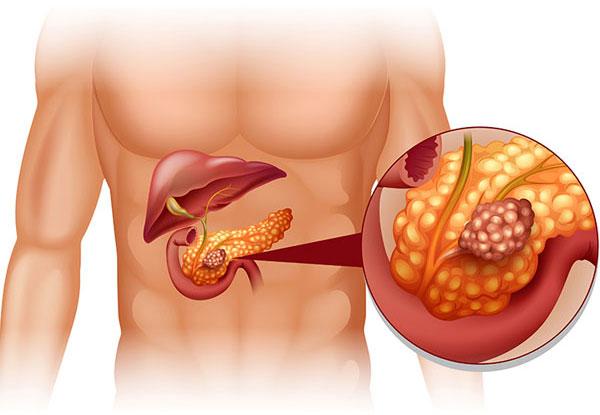Gallbladder Cancer: What You Should Know

Gallbladder Cancer: What You Should Know
Gallbladder cancer is a rare but serious malignancy that often goes unnoticed in its early stages due to the absence of symptoms. And because of this, most cases are diagnosed only after the cancer has spread, leading to a poor prognosis. However, early recognition of symptoms, understanding risk factors, and exploring treatment options such as surgery, chemotherapy, and radiation can all help to effectively manage gallbladder cancer.
In this article, we will discuss all about gallbladder cancer, including its causes, symptoms, diagnosis, treatment options, and why seeking care from the best GI cancer surgeon in Delhi can be essential for the best gallbladder cancer treatment in Delhi.
What is Gallbladder Cancer?
This cancer begins in the gallbladder, which is a small organ beneath the liver that stores bile that is essential for digestion and is produced by the liver. Gallbladder cancer occurs when abnormal cells in the gallbladder begin to grow and multiply uncontrollably. It usually begins in the innermost layer of the gallbladder, known as the mucosal layer, and can spread to other layers and surrounding organs if not diagnosed early.
What Are the Causes and Risk Factors of Gallbladder Cancer?
Gallbladder cancer develops when healthy cells mutate and grow uncontrollably due to acquired genetic changes. These mutations are not inherited; they occur over time. While the exact cause of gallbladder cancer remains unknown, several factors are known to increase the risk, including:
- Gallstones
- Chronic gallbladder inflammation
- Gallbladder polyps
- Porcelain gallbladder (calcium deposits in the gallbladder)
- Individuals over the age of 65
- More prevalent in women
- Being overweight
What Are the Signs and Symptoms of Gallbladder Cancer?
Gallbladder cancer often goes unnoticed in its early stages because its symptoms are similar to other more common conditions, such as gallstones or bile duct blockages. However, as the disease progresses, symptoms may include:
- Nausea and vomiting
- Bloating and fever
- Unexplained weight loss
- Fatigue and weakness
- Lumps or mass in the abdomen
- Jaundice (yellowing of the skin and eyes)
- Persistent pain in the upper right side of the abdomen
How Is Gallbladder Cancer Diagnosed?
Gallbladder cancer symptoms are uncommon and often resemble those of other conditions, leading to its detection during procedures like gallbladder removal or gallstone treatment. If gallbladder cancer is suspected, several diagnostic tests may be conducted, including:
- Imaging tests: Ultrasounds, CT scans, and MRIs
- Blood tests: Liver function tests and tumor markers (CEA and CA 19–9)
- Biopsy
- Laparoscopy
What Are the Different Stages of Gallbladder Cancer?
The stage of gallbladder cancer is determined based on how far the cancer has spread:
- Stage 0: Abnormal cells are found in the innermost layer of the gallbladder.
- Stage 1: Cancer is confined to the mucosal layer and may even spread to muscle layers.
- Stage 2: Cancer has spread beyond the muscle layer to the connective tissue layer.
- Stage 3: The disease has reached nearby organs or lymph nodes.
- Stage 4: Cancer has spread to multiple lymph nodes, blood vessels, and/or distant organs.
How Is Gallbladder Cancer Treated?
The treatment of gallbladder cancer depends on the stage at which it is diagnosed. Early-stage cancers may be treatable with surgery, while advanced cancers require more complex treatments.
Early-stage treatment
- Surgery: The primary treatment for early-stage gallbladder cancer involves a cholecystectomy, where the gallbladder is removed. In cases where the cancer has spread slightly, an extended cholecystectomy may be performed, which includes the removal of surrounding tissues and lymph nodes
- Chemotherapy: This involves the use of drugs to kill cancer cells or prevent them from multiplying. Chemotherapy helps to destroy any remaining cancer cells after surgery
- Radiotherapy- it is less commonly used in the treatment but may sometimes be required in some scenarios
Advanced-stage treatment
For cancers that can’t be removed surgically, are recurrent, or have spread where surgery is not an option, the focus shifts to symptom management and extending the patient’s life. Treatment options may include:
- Targeted therapy: Focuses on cancer cells with specific gene mutations.
- Immunotherapy: Enhances your immune system to better recognize and attack cancer cells.
- Radiosensitizers: Increase cancer cells’ sensitivity to radiation therapy.
How Can You Prevent Gallbladder Cancer?
There is no sure way to prevent gallbladder cancer, but reducing risk factors such as maintaining a healthy weight, avoiding smoking, and managing gallstones or other gallbladder-related conditions can lower your risk.
Why Choose Dr. Neeraj Goel for the Best Gallbladder Cancer Treatment in Delhi?
If you or a loved one is facing a gallbladder cancer diagnosis, it is essential to seek care from an experienced specialist. Dr. Neeraj Goel, the best GI cancer surgeon in Delhi, is renowned for providing the best gallbladder cancer treatment in Delhi. With a lot of experience in treating complex GI cancers, Dr. Goel offers a personalized approach to care, combining advanced surgical techniques with compassionate patient management.
For those seeking the best care for gallbladder cancer treatment in Delhi, scheduling an appointment with Dr. Neeraj Goel guarantees access to top-notch medical expertise and a dedicated approach to achieving the best possible results in cancer care.
To schedule an appointment With Dr. Neeraj Goel a Cancer Surgeon in Delhi, please contact:
Name: Dr. Neeraj Goel (Cancer Surgeon in Delhi)
Address: D-1, Hakikat Rai Rd, Block D, Adarsh Nagar, Delhi, 110033
Address: CK Birla Hospital, 57/41, West Punjabi Bagh, Punjabi Bagh, New Delhi, Delhi, 110026
Phone: +91–9667365169, +91–9599294453
Website: www.gastrodelhi.co

Comments